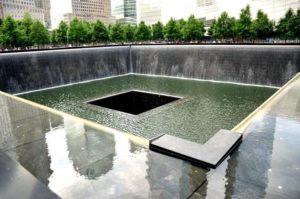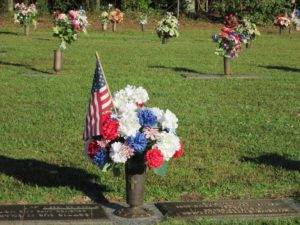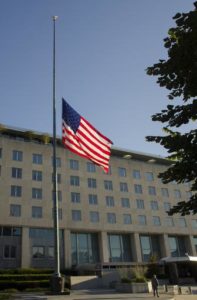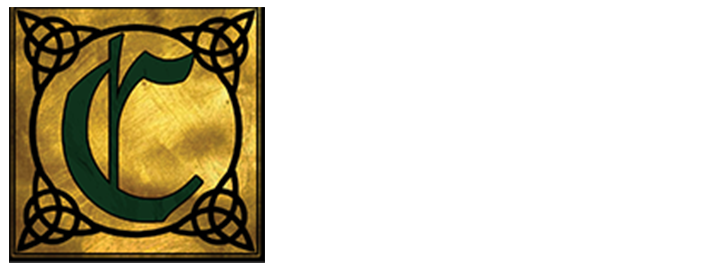We will never forget.
This essay is dedicated to all who were murdered in Las Vegas on the night of October 1st, 2017, all who suffer from their wounds (seen and unseen), the families who grieve loss, those who gave their lives for others, and those who helped in great or small ways. We stand with the people of Las Vegas, silent, arms around their shoulders, tears streaming down our cheeks, heads bowed.
 I had just finished lifting weights at the Solheim Center at Moody Bible Institute. Workers were turning on televisions around the facility. Gaggles of students began to cluster around them. We saw the plumes of smoke rising from one building just as an airliner slammed into the second World Trade Center. Announcements across campus and throughout Chicago directed residents to stay inside, commuters to leave the city.
I had just finished lifting weights at the Solheim Center at Moody Bible Institute. Workers were turning on televisions around the facility. Gaggles of students began to cluster around them. We saw the plumes of smoke rising from one building just as an airliner slammed into the second World Trade Center. Announcements across campus and throughout Chicago directed residents to stay inside, commuters to leave the city.
 As I walked a mile and a half to the train station I witnessed empty sidewalks and traffic-less streets. Fighter jets broke the sound barrier overhead. We found out later officials believed big cities like Chicago could be next. All America was in shock. We clung to every news report. Each bit of new information became its own story-line.
As I walked a mile and a half to the train station I witnessed empty sidewalks and traffic-less streets. Fighter jets broke the sound barrier overhead. We found out later officials believed big cities like Chicago could be next. All America was in shock. We clung to every news report. Each bit of new information became its own story-line.
The date was September 11th, 2001.
 At 4 a.m. yesterday morning I began seeing news reports of a shooting in Las Vegas a couple of hours before. Two people had been killed. My phone chimed over and over with the latest news, the death toll rising. Finally I turned on the television to see the video, much like I and everyone did on 9/11.
At 4 a.m. yesterday morning I began seeing news reports of a shooting in Las Vegas a couple of hours before. Two people had been killed. My phone chimed over and over with the latest news, the death toll rising. Finally I turned on the television to see the video, much like I and everyone did on 9/11.
Eyelids barely held the tears as I listened to the description of the worse mass shooting in American history: the carnage, the loss of life, hundreds hospitalized. I raged against the abject cowardice of a madman shooting at concertgoers in downtown Las Vegas.
 Flashbacks continued throughout the day. I remembered going back to Chicago on the train soon after 9/11. I was supposed to teach next gen teachers about classroom teaching. I thought then as I thought yesterday, “How can I teach/write as if this is just another day, another part of the curriculum?”
Flashbacks continued throughout the day. I remembered going back to Chicago on the train soon after 9/11. I was supposed to teach next gen teachers about classroom teaching. I thought then as I thought yesterday, “How can I teach/write as if this is just another day, another part of the curriculum?”
I couldn’t then, I can’t now.
 During a 45 minute train ride sixteen years ago I wrote a lesson for teachers entitled “How to Teach After the World Changes.” I referenced the laments of the Psalmist, the wails of Job, the anger of Habakkuk, and longing for peace from Malachi. My words focused on how to minister to people who had suffered loss.
During a 45 minute train ride sixteen years ago I wrote a lesson for teachers entitled “How to Teach After the World Changes.” I referenced the laments of the Psalmist, the wails of Job, the anger of Habakkuk, and longing for peace from Malachi. My words focused on how to minister to people who had suffered loss.
The encouragement I brought to students then I bring to readers now; a list of suggestions.
Don’t focus on the person who committed the atrocity, focus on the people you can help in their calamity.
Don’t focus on the political concerns of what should or should not be done, focus on the concerns of spirit, the wellspring of human suffering and love.
Don’t explain, interpret, or conclude, rather comfort, calm, and cry.
Don’t clamor for a cultural response, calling for gun control, rather stand in line at the Red Cross to give blood.
Don’t believe this is the “worst” or the “last” but recognize that “awful” and “horrific” will happen again; how we respond now will help us react then.
I will never forget September 11th, 2001. Now I will never forget October 1st, 2017.
I will also remind myself that my best response to any terror-filled situation is how to prepare myself, my readers, and my students for suffering.
 Mark believes that lament is the proper biblical response to suffering (essay), that human horrors will continue until Jesus returns (essay), and that the problems we face are problems of the human heart (essay). Dr. Mark Eckel is President of The Comenius Institute (website), spends time with Christian young people in public university (1 minute video), hosts a weekly radio program with diverse groups of guests (1 minute video), and teaches weekly at his church (video). Picture credit: snappygoat.com
Mark believes that lament is the proper biblical response to suffering (essay), that human horrors will continue until Jesus returns (essay), and that the problems we face are problems of the human heart (essay). Dr. Mark Eckel is President of The Comenius Institute (website), spends time with Christian young people in public university (1 minute video), hosts a weekly radio program with diverse groups of guests (1 minute video), and teaches weekly at his church (video). Picture credit: snappygoat.com


